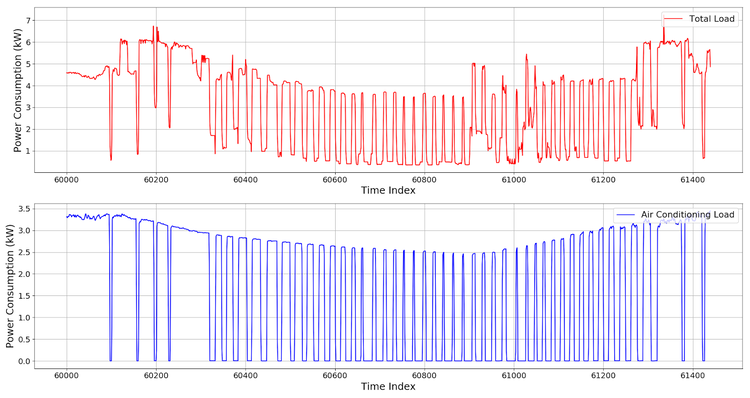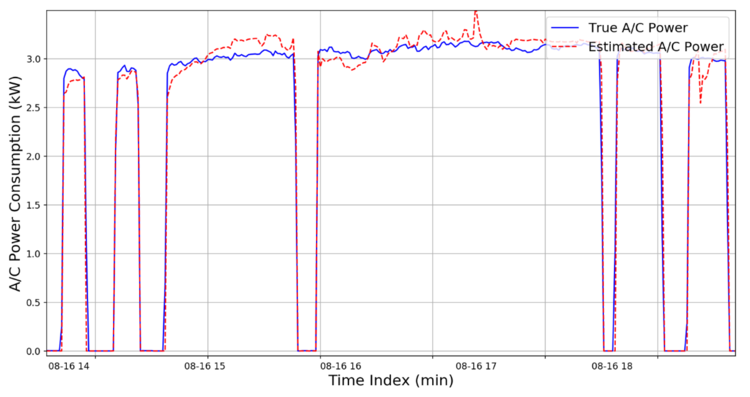A/C Smart Usage Project
Non-intrusive A/C load disaggregation using deep learning
Background
CUIP is studying how residential air conditioning can be made more efficient. Efficient energy usage is a cornerstone issue for smart city researchers. Air conditioning accounts for the majority of energy consumption in the United States, and learning to use it efficiently can lead to significant savings.
Researchers began by trying to predict A/C on/off cycle pattern of houses and estimating A/C usage by analyzing the total energy consumption. A key part of this research is ensuring that it remains non-intrusive, meaning CUIP is not installing devices in the house. Currently, CUIP is trying to detect occupancy using the total energy consumption to use this information for demand response problems.
Many energy-related resources can be saved if we can figure out when we can turn off the A/C unit to reserve energy and also when people are not home. Our research seeks to find ways the energy provider can turn A/C off while the occupant isn’t at home, but turn it back on before the homeowner arrives home, so that energy consumption is lowered while comfort level is maintained and left unaffected.
Analysis
In the figures above, our research shows the heavy correlation between A/C usage and total power consumption, hence our focus on the smart regulation of A/C usage—by doing so, we are able to create efficient power usage with no effects to the resident’s comfort level.

